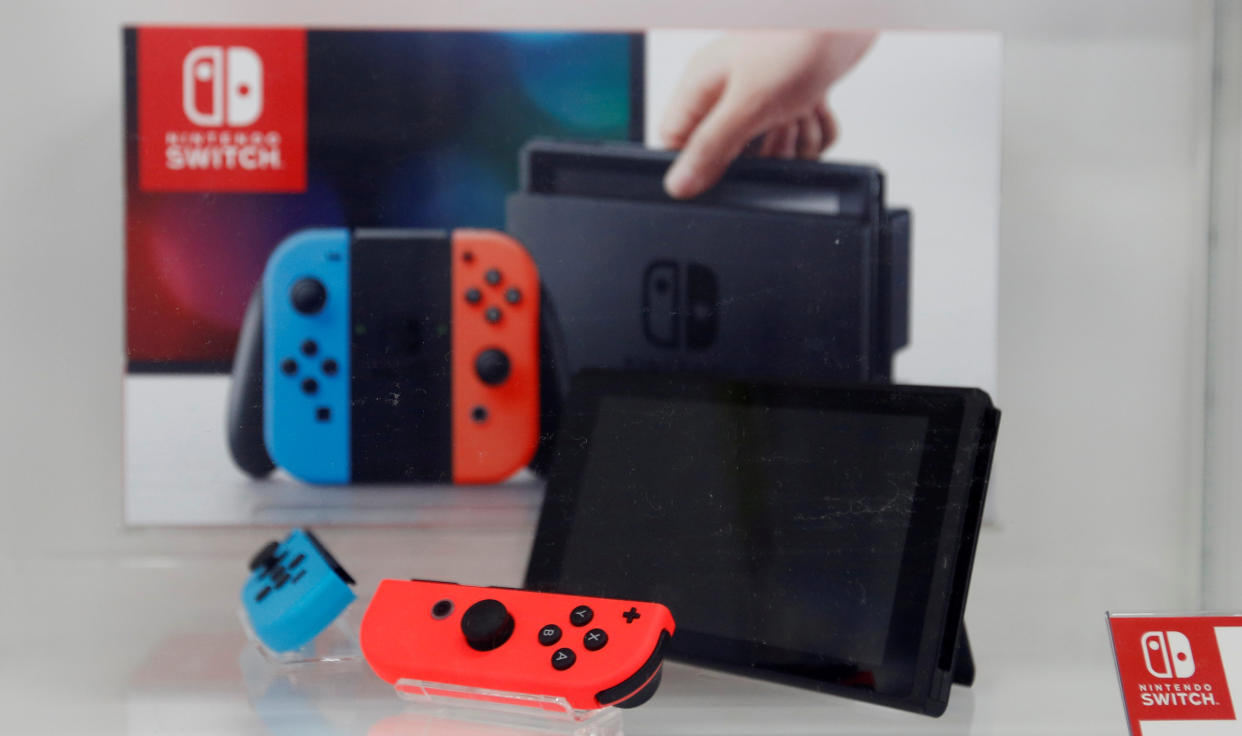Why the Switch was the hit Nintendo needed for its turnaround

It’s official: Nintendo (NTDOY) is back.
Turnaround stories are few and far between in the brisk-paced world of technology, but the Japanese gaming company’s most recent earnings solidified it as the industry’s latest “comeback kid,” driven by robust sales of the Switch.
Nintendo revealed this week that it sold 2.9 million Switch consoles in its most recent quarter, bringing the total number of consoles sold so far to 7.6 million units. The company also sold 22 million Switch games during the last six months. Nintendo’s stock is up over 80% year-to-date.
‘It emulates a tablet more than the Wii U did’
Wedbush Securities analyst Michael Pachter, who estimates the Switch will now sell 75 million units during its lifetime, admits the Switch surpassed his initial expectations, in part because it succeeds where Nintendo’s previous console, the Wii U, failed.
“The Switch is actually pretty fun: a bigger than normal handheld, and when on one’s lap, the screen is actually quite large,” Pachter said. “It emulates a tablet more than the Wii U did.”
A Frankenstein-like marriage of tablet and home console features, the Wii U sold just 13.5 million units during its four-year lifespan. The device was criticized for being severely underpowered, confusingly named and gimmicky. Its biggest failing? A controller with a tablet-like large screen you could play games on. But if you moved it more than a few yards away from the console, you lost the signal, and the controller became a worthless chunk of plastic. As a result, the Wii U’s poor sales contributed to significant losses for Nintendo in more recent years.
A steady drumbeat of excellent games
Lewis Ward, research director for gaming at global market research firm IDC, was somewhat bearish on the Switch when it debuted last March. But Ward has since changed his tune, because Nintendo now releases first-party games at a steady clip from its stable of intellectual property that includes Mario, Zelda, and Mario Kart.
According to a report published by IDC in October, the Switch’s biggest strengths are around Nintendo brand loyalty and its exclusive games — two areas where it handily beats competitors such as the PlayStation 4 Pro and the upcoming Xbox One X.

Games such as “Zelda: Breath of the Wild” and “Super Mario Odyssey” have been widely hailed by critics as two of the highest-rated games of all time. “Zelda: Breath of the Wild” has sold 4.7 million units to date. “Super Mario Odyssey,” meanwhile, sold over 2 million units in its first three days, according to Nintendo. Those are stellar numbers, no matter how you slice them.
“If they can keep that steady drumbeat of excellent games, that’s more important in my view than trying to open the funnel for third-party developers to put more mature games on the Switch,” Ward explains.
Pachter also suggests Nintendo seriously consider dropping the Switch’s price by $100 from $299 to $199. When Sony (SNE) slashed the price of the PlayStation 2 in 2002 by one-third to $199, sales skyrocketed, and the PlayStation 2 went on to become the bestselling game console of all time. Pachter says Nintendo would be wise to borrow a page from Sony’s playbook in this case.
“I think $300 [for the Switch] is a little expensive, because I think of the thing as a handheld,” Pachter said. “But if the Switch drops to $200 by January, they’ll be the least expensive console and be better positioned in the years to come.”
—
JP Mangalindan is a senior correspondent for Yahoo Finance covering the intersection of tech and business. Email story tips and musings to jpm@oath.com. Follow him on Twitter or Facebook.
More from JP:
How Amazon quickly trains 120,000 employees for the holidays
Sallie Krawcheck on good leadership: ‘Don’t molest your employees’
Why the Russia ad scandal could actually be a win for Facebook
Lyft exec: Humans won’t lose their jobs because of self-driving vehicles
RBC analyst: Only 2 scenarios would spur investors to flee Facebook
LEAKED AUDIO: New Uber CEO Dara Khosrowshahi reveals 3 things employees should know about him


